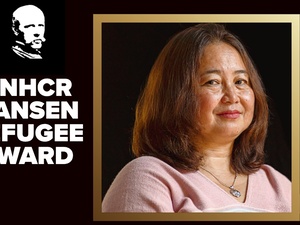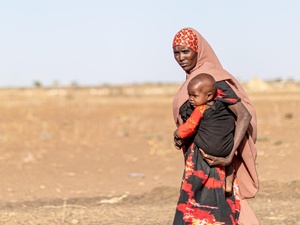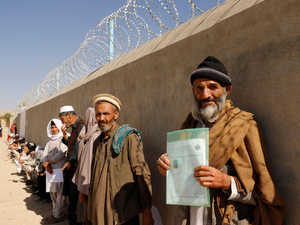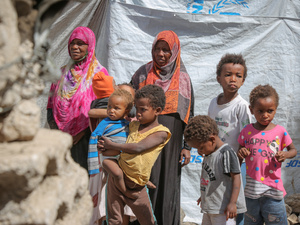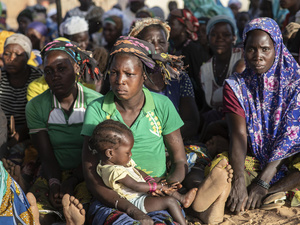More than 3,000 Congolese flee insecurity, suffering in North Kivu
More than 3,000 Congolese flee insecurity, suffering in North Kivu
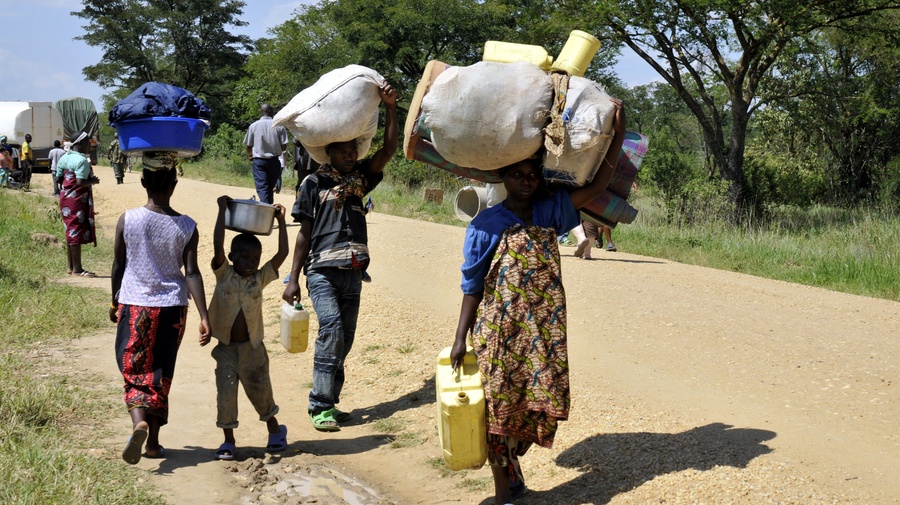
These villagers carry their belongings as they head towards the border with Uganda during an earlier exodus from North Kivu province.
KAMPALA, Uganda, March 9 (UNHCR) - More than 3,000 Congolese civilians have fled into Uganda from Democratic Republic of the Congo's North Kivu province to escape fresh fighting since the beginning of this year.
"UNHCR is concerned that more people will be forced to flee" if the insecurity and clashes continue, a spokesman said on Friday. "Those arriving in Uganda are mostly farming people, and we are hearing from them accounts of abductions, looting, harassment, and rape," he added.
People are crossing into Kisoro district in south-western Uganda. Most of them originate from North Kivu's Rutshuru district. However, some are coming from Masisi and Walikale territories, located further inside North Kivu - about 200 kilometres and 350 kilometres from Uganda respectively.
Some of the refugees told UNHCR staff that following nightly attacks by armed men, whole villages had fled.
In Kisoro, UNHCR staff heard from a Congolese man who described how he was sexually assaulted by several armed men after being forced to witness his wife being gang raped. His daughter, who resisted, was killed by the same group.
UNHCR has opened a transit centre in Nyakabande, Kisoro district, with capacity for 1,000 people. The centre provides tented accommodation, water and sanitation facilities, cooked meals and basic medical care.
Meanwhile, UNHCR is supporting local health centres by providing essential drugs, water and furniture. "We regularly transport refugees from the transit centre to Nakivale and Oruchinga settlements, which already host Congolese refugees, some of whom have been in Uganda since the civil war of the 1990s, as well as people of several other nationalities," the spokesman said.
UNHCR fears that further deterioration of the security situation will stall the tripartite process initiated by the Democratic Republic of the Congo (DRC), Uganda and UNHCR in October 2010 to pave the way for the voluntary return of Congolese refugees living in Uganda. When the tripartite agreement was signed, 32,000 out of the 81,000 Congolese refugees living in Uganda had expressed a wish to return home. More than 7,000 returned spontaneously 2010 and 2011. Renewed violence is forcing many of them back to Uganda.
Fighting involving government troops, rebel forces and local defence groups in the DRC's eastern region has forced more than 100,000 civilians out of their homes since late November. Most are in North Kivu, where some 600,000 people are internally displaced, over one-third of the 1.7 million IDPs countrywide.
By Fatamouta Lejeune-Kaba


